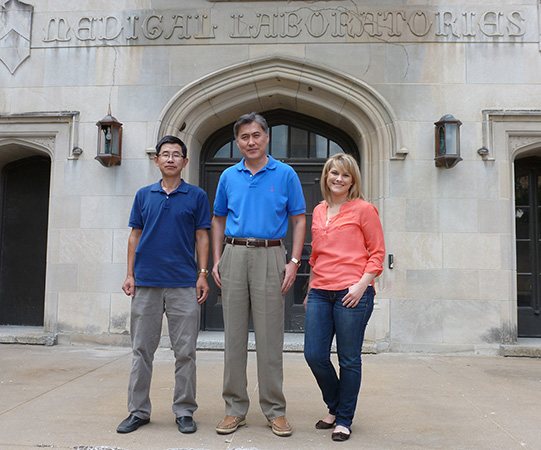
Welcome to the Habelhah Lab
Our long-standing interest is to understand the molecular mechanisms of signal transductions downstream of the TNF receptor (TNFR) superfamily members, and to identify the targets and pathways that link deregulated kinase activities and cellular stresses to chronic inflammation and tumor progression.
TRAF2 and RIP1 are the key effector proteins that transduce signals emanating from most members of the TNFR superfamily, resulting in activation of the pro-inflammatory and anti-apoptotic NF-κB pathway. NF-κB mediates the expression of genes involved in inflammation, the immune response, cell proliferation and apoptosis.
Abnormal NF-κB activation has been observed in many types of human cancers; however, the mechanisms underlying constitutive NF-κB activation in cancer cells are still largely elusive. We mapped TRAF2 phosphorylation and RIP1 cleavage sites, and discovered that TRAF2 phosphorylation and RIP1 cleavage modulate NF-κB activation and promote cancer cell survival.
In addition, we identified several types of human cancers that display constitutive TRAF2 phosphorylation, and the kinases (TBK1, IKKε and PKCζ) that directly phosphorylate TRAF2. Our goal is to determine cell type- and receptor-specific roles of TRAF2 phosphorylation and RIP1 cleavage in NF-κB activation, and to establish the pathophysiological relevance of TRAF2 and RIP1 to the development and progression of cancers.
These studies will provide a foundation for the development of cell type- and pathway-specific anti-inflammatory and anti-cancer drugs.
